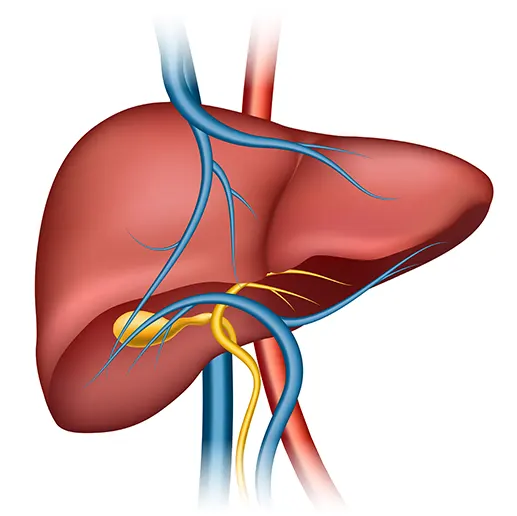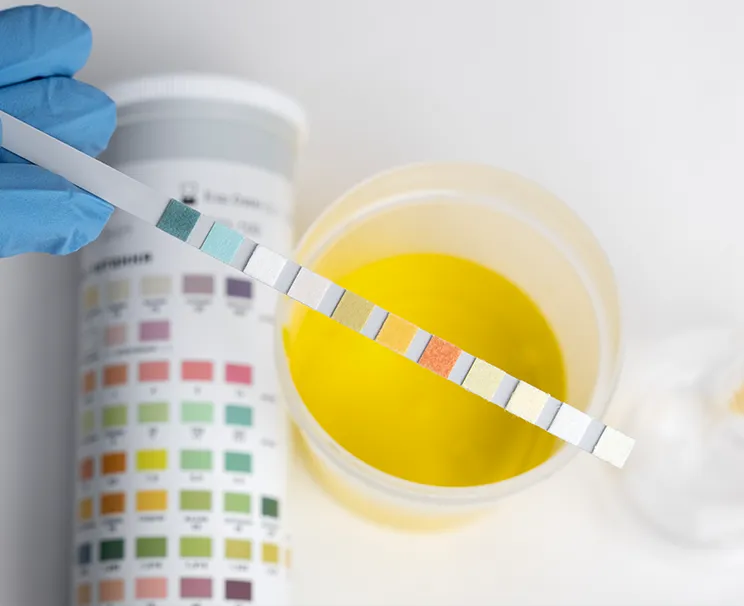What is cirrhosis? Cirrhosis is a chronic condition in which the structure and function of the liver are impaired. This occurs when liver cells are damaged and replaced by connective tissue. Factors such as alcohol consumption, viral hepatitis infections (especially Hepatitis B and C), and fatty liver disease are the most common causes of cirrhosis. This condition can prevent the liver from performing vital functions such as filtering blood, eliminating toxins, and producing proteins.
What is cirrhosis? Another answer to this question is that it is a health problem that can lead to serious complications in advanced stages. The disease may not show clear symptoms in the early stages, but as it progresses, symptoms such as jaundice, abdominal swelling (ascites), fatigue, loss of appetite, and easy bleeding may appear. The goal of cirrhosis treatment is to halt the disease’s progression and manage complications. The treatment plan varies depending on the underlying cause and may include lifestyle changes, medication, and in advanced cases, liver transplantation. Early diagnosis is therefore crucial for controlling cirrhosis.
In medicine, cirrhosis is defined as liver fibrosis. Its symptoms include:
- Loss of energy and persistent fatigue.
- Lack of appetite and weight loss.
- Yellowing of the skin and eyes (due to bilirubin accumulation).
- Fluid accumulation in the abdominal cavity.
- Swelling in the legs and feet.
- Easy bruising and skin bleeding.
- Persistent itching of the skin.
- Redness in the palms.
- Difficulty concentrating, confusion, or forgetfulness.
- Spider-like vascular structures on the skin surface.
What is Liver Fibrosis?
Liver fibrosis is a serious liver disease that develops due to chronic damage to the liver. This condition arises when healthy liver tissue is replaced by connective tissue, preventing the organ from performing its normal functions.
Liver fibrosis can progress unnoticed for years without showing any symptoms. However, as it advances, symptoms such as fatigue, loss of appetite, jaundice, and abdominal fluid accumulation may become evident. The most common causes include excessive alcohol consumption, Hepatitis B and C infections, and fatty liver disease. Additionally, genetic factors and exposure to toxic substances can lead to liver fibrosis.
Liver failure is one of the most severe complications of advanced cirrhosis. When the liver’s essential functions—such as detoxification, protein production, and blood clotting—are disrupted, overall health is significantly affected. This condition is particularly characterized by hepatic encephalopathy (impaired brain function) and increased susceptibility to severe infections. Reduced blood flow in the liver can also cause portal hypertension, leading to abdominal fluid accumulation (ascites) and esophageal varices.
The treatment of cirrhosis aims to stop the disease’s progression and manage its complications. The treatment process varies depending on the underlying cause. For example, antiviral drugs are used for cirrhosis caused by Hepatitis B, while abstaining completely from alcohol is necessary in cases related to alcohol consumption.
In advanced stages, liver transplantation may be the most effective solution. Lifestyle changes, a balanced diet, and regular health check-ups are part of an effective management plan for this disease. Early diagnosis and proper treatment methods can reduce the disease’s effects. Therefore, regular health check-ups are of great importance, especially for individuals in high-risk groups.

What Causes Cirrhosis?
Liver fibrosis develops as a result of long-term and recurring damage to the liver. One of the most common causes of cirrhosis is alcohol consumption. Excessive and regular alcohol use can damage liver cells, leading to cirrhosis.
Additionally, viral hepatitis infections are a significant risk factor. Particularly, Hepatitis B and C can cause chronic liver damage and trigger the development of liver fibrosis over time.
Fatty liver disease is another cause of cirrhosis. Fatty liver disease is common in individuals with obesity, diabetes, and high cholesterol levels and can progress to cirrhosis if left untreated. Genetic disorders, immune system malfunctions, and prolonged exposure to toxic substances can also damage the liver.
To prevent cirrhosis, one should avoid alcohol consumption, adopt a healthy lifestyle, and control risk factors. Early diagnosis plays an important role in halting the progression of cirrhosis and preventing complications. Therefore, regular health check-ups should not be neglected.

Liver fibrosis is considered an irreversible disease; however, if diagnosed early, its progression can be halted and complications prevented. The treatment of cirrhosis is planned based on the underlying causes.
For instance, in alcohol-induced cirrhosis, stopping alcohol use or antiviral treatment for Hepatitis B-related liver fibrosis can slow the disease’s progression. However, once connective tissue, known as scar tissue, has formed, it cannot completely heal. In advanced cirrhosis, liver transplantation is the most effective treatment to extend life expectancy.
The stages of cirrhosis and the condition of the liver are evaluated using blood tests, imaging methods, and biopsy. Liver function tests provide information about the liver’s functions, and abnormalities in ALT, AST, ALP, and bilirubin levels may indicate the presence of the disease.
Additionally, imaging methods such as ultrasound and MRI can reveal structural changes in the liver tissue. For a definitive diagnosis, a liver biopsy can be performed to confirm the degree of liver damage.
The liver is one of the body’s most important organs for detoxification, and a healthy diet, regular exercise, and adequate water intake support its natural functions. Paying attention to liver health in the early stages of disease can prevent the formation of scar tissue.
Foods rich in antioxidants, especially leafy green vegetables and fruits containing vitamin C, can help detoxify the liver. However, in chronic conditions like liver fibrosis, consulting a specialist before attempting to cleanse the liver is essential.











